If you have not done so, read the previous related post here.
This post took longer than usual to get up due to the sheer number of photos and some manually arranged panorama shots. We were now at the biggest highlight of the trip -- Cappadocia, the Land of the Beautiful Horses. There are no horses now but great scenery. The rocks in this area were formed from volcanic deposits giving rise to different layers of rock. Some layers were harder than the other (notably the top layer of basalt), hence uneven erosion has left interesting rock formations referred to as "Fairy Chimneys". This is very much similar to the Grand Canyon in the USA.
Leaving our hotel in the town of Ürgüp, we headed for Göreme Open Air museum. The area of Göreme is home to a few early Christian theological schools for many years (early centuries A.D.). One of which is at the site of this museum where about 29 churches are present. Before that, we stopped by the "Three Beauties".
This post took longer than usual to get up due to the sheer number of photos and some manually arranged panorama shots. We were now at the biggest highlight of the trip -- Cappadocia, the Land of the Beautiful Horses. There are no horses now but great scenery. The rocks in this area were formed from volcanic deposits giving rise to different layers of rock. Some layers were harder than the other (notably the top layer of basalt), hence uneven erosion has left interesting rock formations referred to as "Fairy Chimneys". This is very much similar to the Grand Canyon in the USA.
Leaving our hotel in the town of Ürgüp, we headed for Göreme Open Air museum. The area of Göreme is home to a few early Christian theological schools for many years (early centuries A.D.). One of which is at the site of this museum where about 29 churches are present. Before that, we stopped by the "Three Beauties".
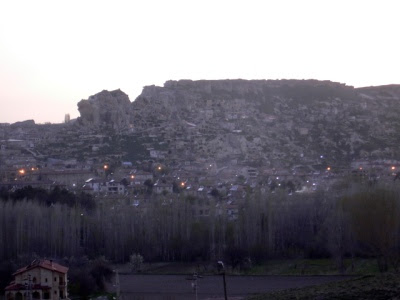
Ürgüp the evening before. It is not uncommon to see caves mixed with modern houses in Göreme.
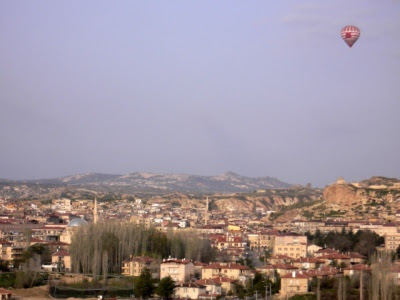
The Ürgüp morning
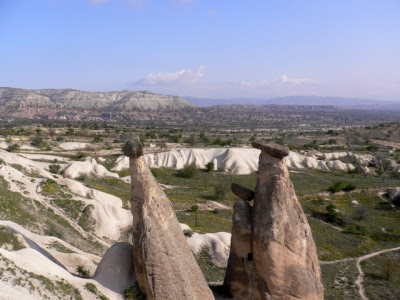
The Three Beauties
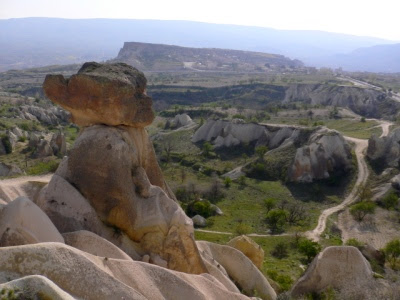
This looks like a person carrying a scroll
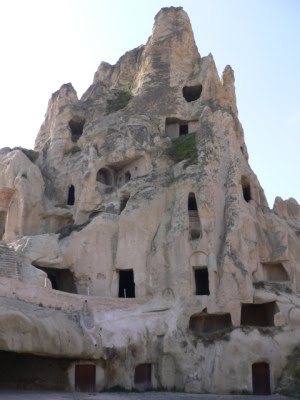
At the open air museum. This was a dormitory. Many children used to study here, including orphans.
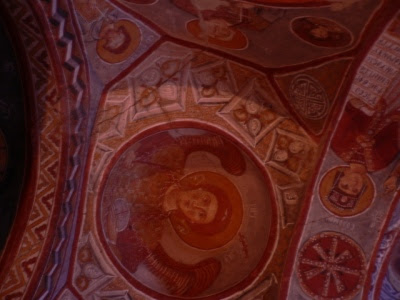
Paintings in the Apple Church. These were made later when different colored paints were available. Pictures might be slightly blur as flash is prohibited.
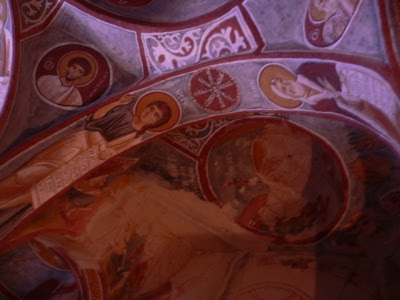
The 2 persons painted on the arch holding parchments are of the Bible authors.
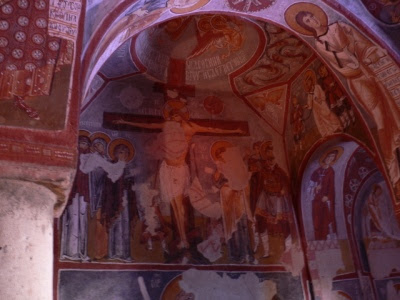
Crucifixion. Note the Bible authors in the arch holding a parchment. Pictures were used to educate as literacy was low among students.
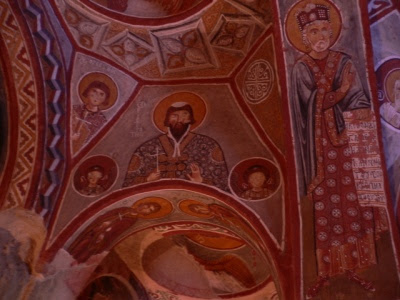
When the Seljuks came, many of the faces and eyes of the paintings were scratched off as these were deemed the most inspiring. Also, idols were prohibited by Islam. Nowadays these are world heritage sites to be preserved.
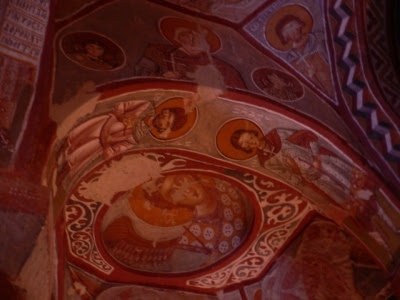
Angel in a dome
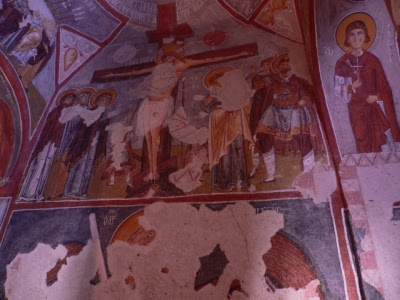
Crucifixion close-up
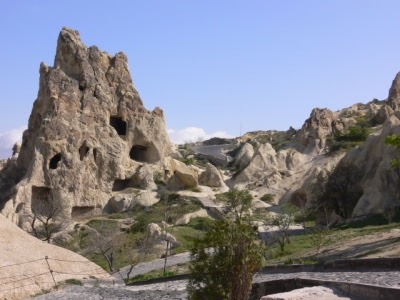
Back outside. The dormitory from a different angle.
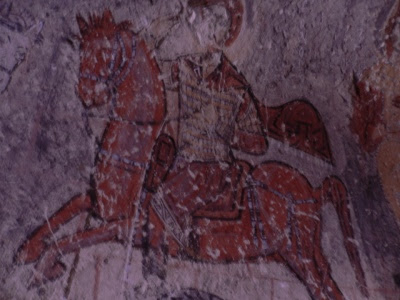
In the Snake Church, this is either St. Theodore or St. George
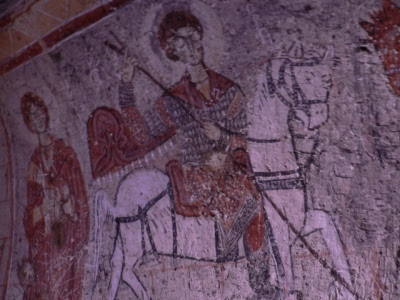
One of the above-mentioned Saints
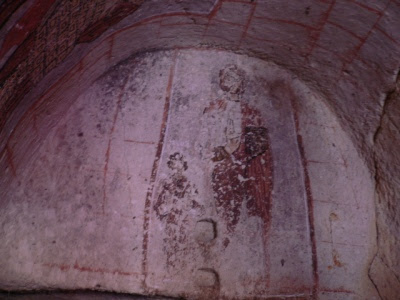
Christ with the child Emperor Constantine
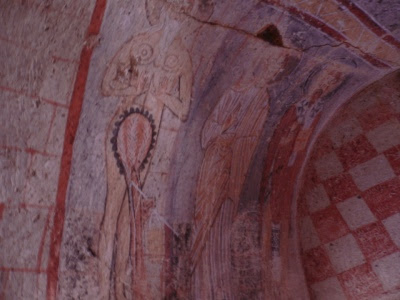
The one on the left is Saint Onuphrius. Apparently my guide had a different story from the one found on Wikipedia: Saint Onuphrius was a Egyptian prostitute that wanted to repent. After appealing to God, her head was changed to that of an old man but she retained the body of a woman as her atonement for her sins.
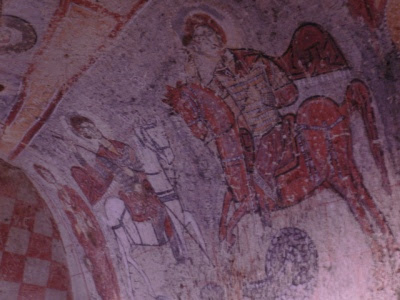
St. George and St. Theodore slaying the Dragon/Serpent
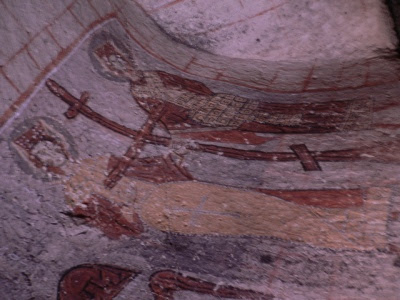
Helena (Constantine's Mother) and Emperor Constantine. Helena is normally depicted as a young woman beside Constantine even though she should already be more than 40 years old.
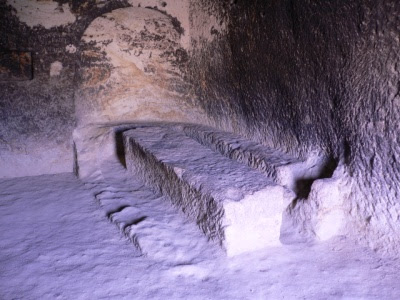
A dining table in one of the cave houses
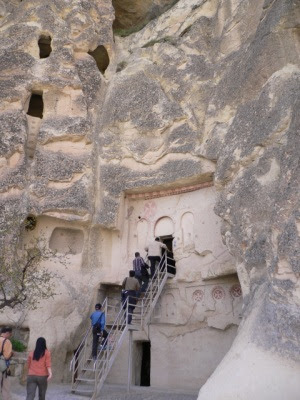
Entering an old Chapel
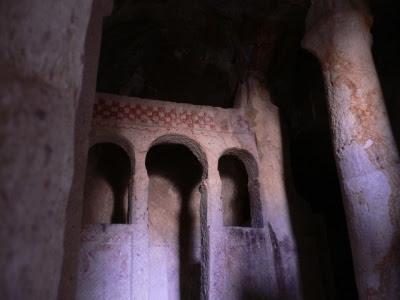
These red paintings are the oldest type of paintings since they are only painted in red.
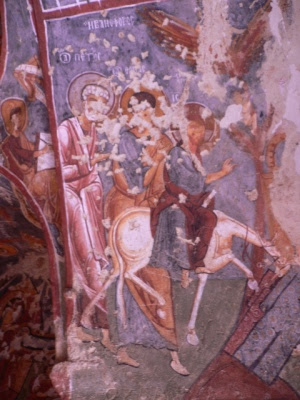
Paintings in another church. I think it could be the Church with Sandals. The horse (face scrapped off) is supposed to be smiling. This is because no emotions are portrayed for people in the biblical stories so as not to corrupt interpretations.
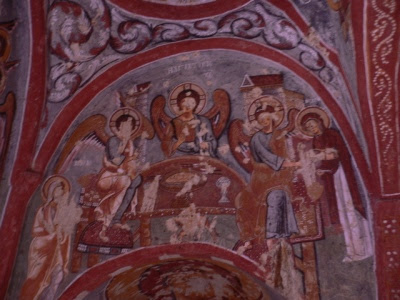
More paintings
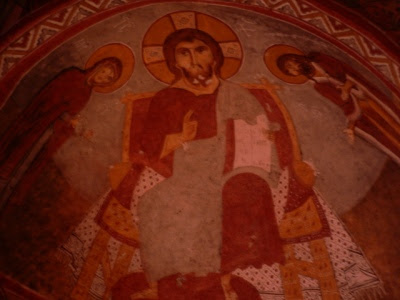
Partial scene of the Last Day of Man
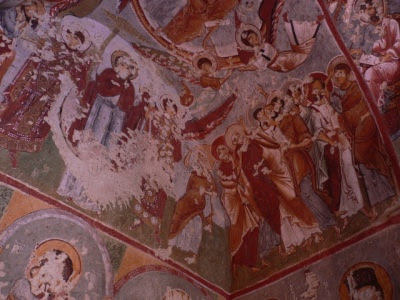
Managed to position my mini-tripod firmly for a clear picture.
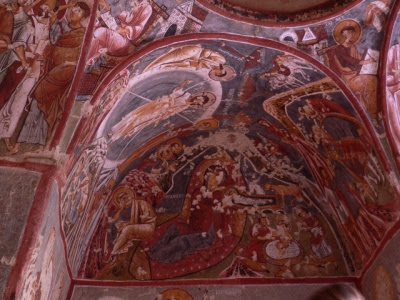
More clear paintings
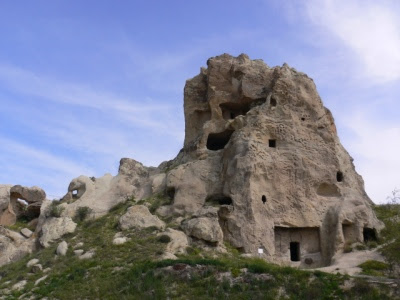
Back outside, the dorm again
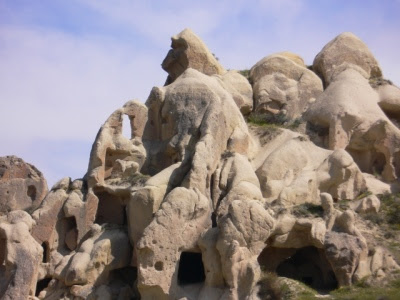
Probably more cave houses
Panorama view taken at the open air museum
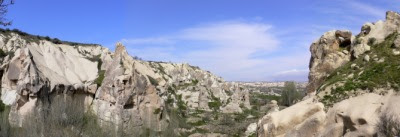
Another panorama
Next we left for a carpet weaving school and merchandising place to view the renowned Turkish carpets.
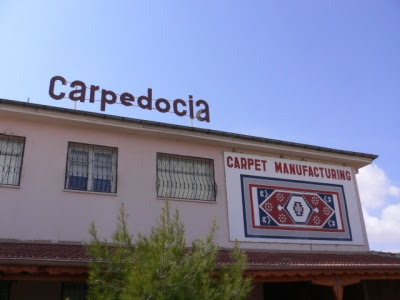
Carpedocia in Cappadocia!
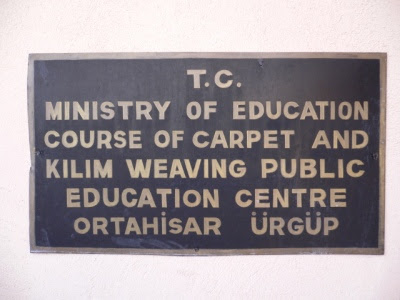
This is an official school. Carpets are important in Turkey and every house has many. Their primary use is to collect dust and prevent chill from cold floors.
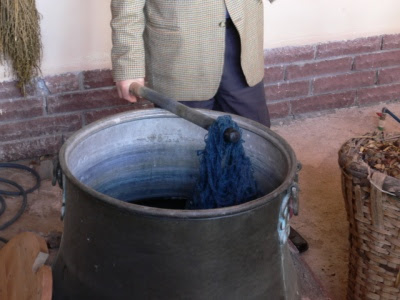
Prof going over the various dye colors
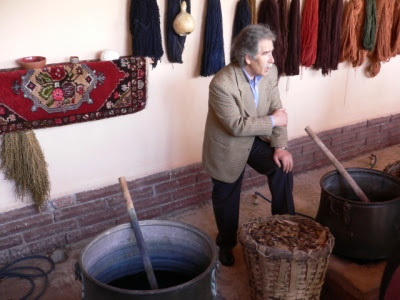
Different carpet colors are for different purposes, similar to the ideas in Chinese Geomancy.
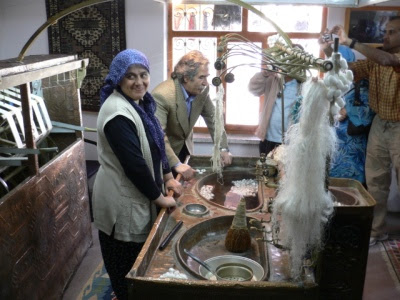
Extracting and weaving white silk. We were told White Silk was only available in Turkey. The rest are yellow silk.
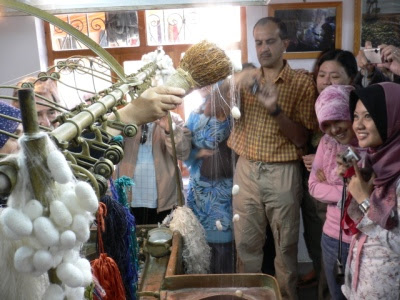
Silk strands of the cocoons
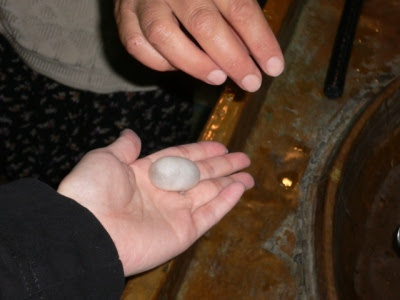
A white silk cocoon
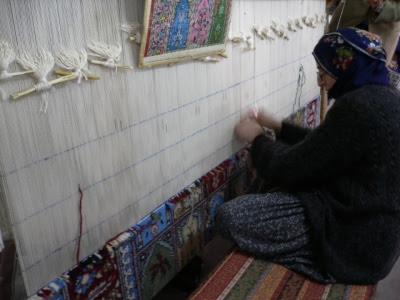
Carpet weaving. Turkish carpet uses a double knot system that is supposed to be superior to the single knot systems used elsewhere. The weaver normally works in 3 hour blocks.
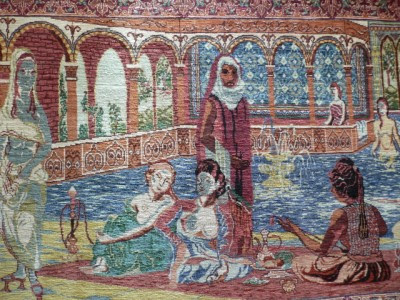
A decorative carpet weaved using silk on a silk base. Many of these requires in excess of 10 years to make and are normally done under magnification.
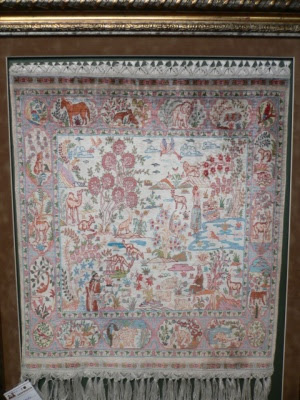
Another silk on silk piece. This costs a few thousand USD.
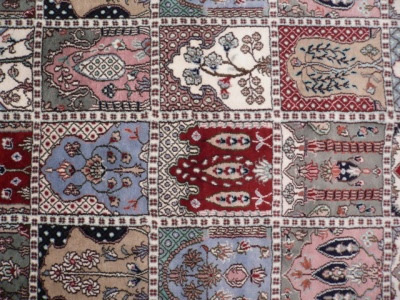
Wool woven on a wool base. These are used on the floor.
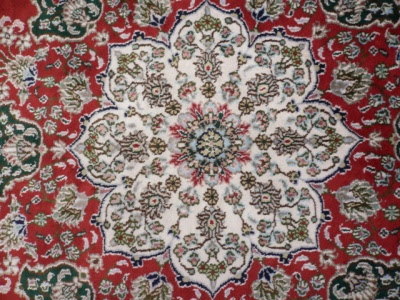
Another wool on wool
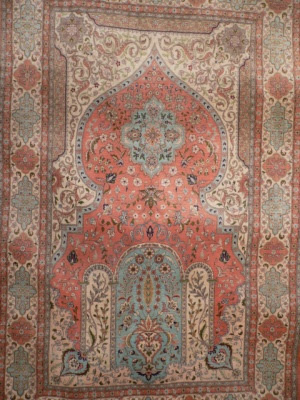
Silk on silk. Distinctive via the "high resolution".
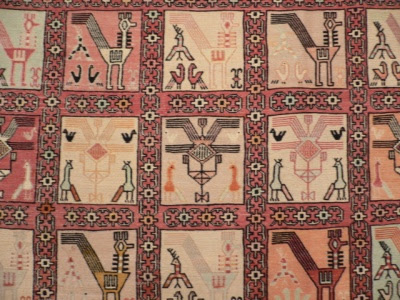
More carpet
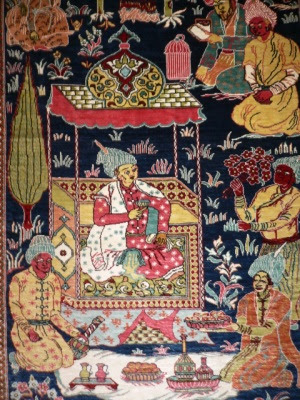
Silk on Silk
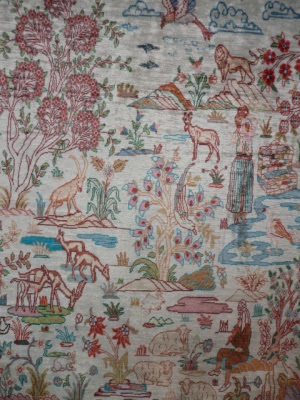
Close up of previous silk decorative carpet
4 comments:
just to show i am visiting your blog. quick post more
oh haha I thought nobody was viewing. the panaroma shots might make good wallpaper for a wide lcd screen.
wah lau... i ahve to say your camera = damn powerful
i saw roughly the same pictures in Aya Sofia.. but my camera lousy
Aaah Wrong wrong the pictures in Ayasofia is actually more detailed and more glittery. I have them, but since I visited it during the return to Istanbul (2nd last day), they are not posted yet.
Actually my camera is not top notch. It's just an old 4 megapixel Lumix. Used the preset configurations (e.g. night shot for low light indoors) and mini tripod. Then I used Picasa to auto-adjust the contrast as many outdoor pictures are "white-washed" by the strong sunlight and it was hard to see the problem on the camera's LCD screen.
Post a Comment